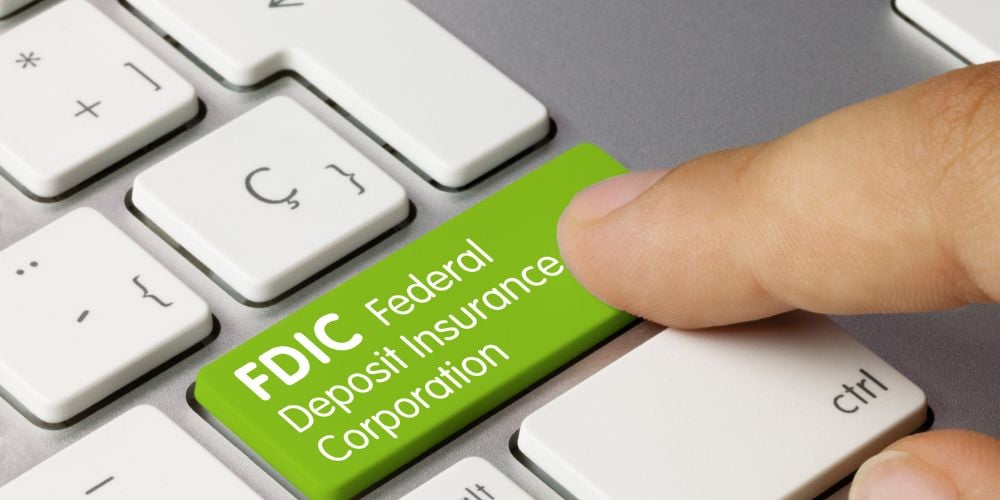Choosing a bank may seem like a simple task, but in reality, it’s a crucial decision that has significant implications for your finances.
One of the most important considerations when selecting a bank is whether it’s FDIC insured.
FDIC insurance provides a safety net for depositors in the event of a bank failure, which can help protect your money. So, Is Truist Bank FDIC Insured?
In this article, we will delve into the topic of whether Truist Bank is FDIC insured and offer an in-depth understanding of the various aspects of FDIC insurance.
What is FDIC Insurance?
FDIC stands for the Federal Deposit Insurance Corporation. It is an independent agency of the U.S. government that provides depositors with protection in the event of a bank failure.
The insurance covers deposits made by individuals and businesses up to certain limits, which helps safeguard your funds.
FDIC insurance provides depositors with assurance that their money is protected even if a bank fails.
In the event of a bank failure, the FDIC steps in to ensure that depositors can access their insured funds. This helps maintain confidence in the banking system and ensures the stability of the economy.

FDIC Coverage Limits
Currently, the standard insurance limit for individual depositors is $250,000 per owned account type in each FDIC-insured bank.
For joint accounts, the insurance limit is also $250,000 per co-owner per owned account type. If you have accounts in multiple banks, each bank’s deposits are insured separately. However, if you exceed the insurance limit, the amount above the limit may not be protected.
Eligible Accounts
Most types of deposit accounts provided by Truist Bank are eligible for FDIC insurance. This includes checking accounts, savings accounts, money market deposit accounts, and certificates of deposit (CDs).
However, certain types of investments such as stocks, bonds, mutual funds, and annuities are not covered by FDIC insurance. It’s crucial to understand the distinctions between insured and non-insured accounts and seek advice from a financial professional if needed.
Is Truist Bank FDIC Insured?
The short answer is yes, Truist Bank is FDIC insured.
How Does FDIC Insurance Protect My Money?
FDIC insurance works by providing depositors with a safety net that ensures their money is protected even if a bank fails.
In the event of a bank failure, the FDIC steps in to ensure that depositors can access their insured funds. This helps maintain confidence in the banking system and ensures the stability of the economy.
Scenarios Where FDIC Insurance Applies
FDIC insurance applies in various scenarios, including traditional bank failures and closures. It also covers instances where banks are acquired or merged.
In these situations, the FDIC works to transfer deposits to another insured bank, ensuring that depositors have continued access to their funds. The FDIC’s role is to safeguard your deposits and protect your financial well-being.
What Deposits are Insured by FDIC?
FDIC insurance covers a wide range of deposits, providing peace of mind to depositors. The typical accounts that are covered by FDIC insurance include checking accounts, savings accounts, money market deposit accounts, and certificates of deposit (CDs). It’s important to note that cash in safe deposit boxes is not protected by FDIC insurance.
What Deposits are Not FDIC Insured?
While most types of deposit accounts are covered, there are certain types that are not protected by FDIC insurance. Some examples include investments in stocks, bonds, mutual funds, annuities, and securities. It’s crucial to understand the distinctions between insured and non-insured accounts and seek advice from a financial professional if needed.
How to Increase Your FDIC Insurance Coverage
Although FDIC insurance provides substantial coverage, there are ways to increase your protection even further. One strategy is to distribute your deposits across different account types or banks.
For example, if you have a combination of individual and joint accounts, each would be insured separately, effectively doubling your coverage. Additionally, understanding the different account ownership categories can help you maximize your FDIC insurance coverage.

What Happens If Truist Bank Fails?
In the event of a bank failure, the FDIC plays a crucial role in safeguarding your deposits. When a bank fails, the FDIC steps in as the receiver, taking control of the bank’s assets and liabilities.
The FDIC determines the insured deposit balances and begins the process of repaying depositors. Typically, depositors receive their insured funds within a few days. However, it’s essential to remember that if you exceed the insurance limits, the amount above the limit may not be protected.
Frequently Asked Questions
Does FDIC insurance cover foreign currency deposits?
No, FDIC insurance only covers deposits denominated in U.S. dollars.
Can FDIC coverage be increased beyond the standard limits?
Yes, FDIC coverage can be increased by utilizing different account ownership categories or opening accounts at different FDIC-insured banks.
Conclusion
Choosing a bank that is FDIC insured is essential for the security of your deposits. Truist Bank is FDIC insured, providing you with peace of mind that your deposits are protected.
Understanding the basics of FDIC insurance, its coverage limits, and the types of deposits that are covered will help you make informed decisions and ensure the safety of your hard-earned money. Remember, in uncertain times, FDIC insurance is there to safeguard your deposits and protect your financial well-being.
In conclusion, FDIC insurance provides a safety net that protects depositors’ hard-earned money in the event of a bank failure.
As a Truist Bank customer, you can rest assured that your deposits are protected by the FDIC, which has played a critical role in ensuring the stability of the U.S. banking system. By understanding FDIC insurance and the types of deposits that are covered, you can make informed decisions that will help safeguard your financial future.


 Tags:
Tags:










